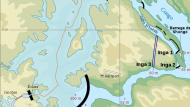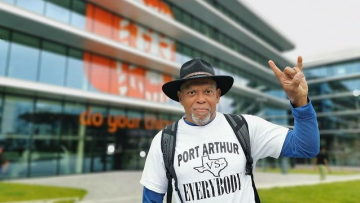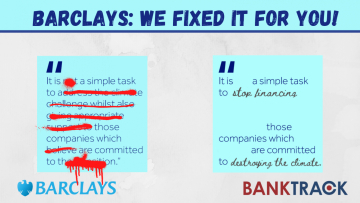Company – On record
This profile is no longer actively maintained, with the information now possibly out of dateBankTrack

Company – On record
This profile is no longer actively maintained, with the information now possibly out of dateBankTrack
Why this profile?
Vattenfall currently burns biomass in over 15 power plants and plans to expand this energy source significantly in the future. In addition, the company also trades wood pellets and wood chips to other energy companies. Wood biomass is labelled by Vattenfall as a sustainable energy source. Nevertheless, burning wood as an energy source releases at least as much CO2 per unit of energy as burning coal. The investments in wood bioenergy put forests under increasing pressure and cause ecological harm to the biodiverse forest ecosystems.
| Sectors | Biomass Electric Power Generation , Coal Electric Power Generation, Coal Mining, Hydroelectric Power Generation, Mining, Nuclear Electric Power Generation, Solar Electric Power Generation, Wind Electric Power Generation |
| Headquarters |
|
| Ownership |
Vattenfall is 100% owned by the Kingdom of Sweden. |
| Subsidiaries |
|
| Website | https://group.vattenfall.com/ |
Sweden's state-owned Vattenfall is Europe's sixth largest generator of electricity and largest producer of heat. In 2013, Vattenfall's total installed capacity across all its operations stood at 39,106 megawatts. In Sweden it has a market share of 50 %. The company's generation assets are spread across the United Kingdom, Sweden, Finland, Denmark, Germany, Poland, Belgium and the Netherlands. It uses 7 sources for its energy: coal, nuclear, hydro, biomass, wind, solar and waste.
About Vattenfall’s investments in wood bioenergy
Vattenfall is one of the biggest European stakeholders in the market for global bioenergy and trades a wide range of biomass products on the global market. It operates over 15 power plants entirely or partially operated with forest biomass in Sweden, Germany and the Netherlands. In 2020 the company sourced a total of 750,000 tonnes of wood chips and pellets. Wood sold to other energy companies has recently been imported from the USA, the Baltic States and Russia.
The company aims to build new biomass plants in the coming years. In Diemen in the Netherlands a new planned biomass heat plant is supposed to burn 200,000 tonnes of imported wood pellets a year. The construction plans are currently put on hold pending the outcome of a court case against the nature permit for the plant. The plant has been strongly opposed by an environmental campaign group.
Vattenfall plans to increase the amount of wood it burns in Germany nearly six-fold in the power plants in Berlin-Moabit and the Märkisches Viertel plant.
In addition to its investments Vattenfall was part of a group of European energy companies founding the Sustainable Biomass Program (SBP). SBP is the single biggest wood pellet certification scheme and has been denounced by environmental NGOs as a smokescreen for greenwashing and “corporate non-accountability”.
Impact on climate
Climate impacts of wood bioenergy
Vattenfall, owned by the state of Sweden, currently releases twice the amount of CO2 as the whole country of Sweden.
The company aims to expand its investments in wood bioenergy significantly. At the point of combustion burning of biomass emits more CO2 than burning fossil fuels. Nevertheless forest biomass is often labelled as a sustainable energy source and claimed to be carbon neutral based on forest regrowth. This does not take into account that forest regrowth will take decades to centuries. In addition there is no guarantee of full regrowth of the cut forests.
Impact on nature and environment
Impacts on forests and biodiversity
Burning wood biomass for energy leads to species extinction and biodiversity loss which are endangering the stability of ecosystems worldwide.
Most of the wood burned by Vattenfall comes from Sweden which is subject to ongoing infringement proceedings by the EU Commission on the ground that “Sweden’s Natura 2000 network is insufficient both as regards habitat types and species under the Habitats Directive”. In addition, according to Sweden’s own reporting under the EU Habitats Directive, 14 out of 15 forest biotopes to be protected have been classified as “bad” or “inadequate”.
All of the wood currently burned in Germany by Vattenfall was sourced domestically. Also German forests are under pressure and suffer from loss of tree cover. Around half of Germany’s entire annual wood harvest is burned for energy, increasing the pressure on forests.
In addition, Vattenfalls trades wood pellets from the Southeastern USA where wood is routinely sourced from coastal hardwood forests which form part of a Global Biodiversity Hotspot.
Impact on pandemics
Wood biomass is associated with high rates of deforestation as well as monocultures of various crops. There is a growing body of evidence that shows the connection between deforestation and an increased risk for disease outbreaks and pandemics. For example, monocultures like eucalyptus plantations reduce biodiversity leaving species like rats and mosquitoes, which are more likely to spread dangerous pathogens, to thrive. This biodiversity decline results in a loss of natural disease regulation and poses a risk for human, animal and environmental health.
Other impacts
Nuclear power plant Forsmark had a serious accident in 2006. Shortly afterwords there was a series of accidents in the German plants Brunsbuettel and Kruemmel. After those accidents Vattenfall tried to conceal important facts and had a negative press because of the misinformation. Vattenfall is promoting nuclear power as an "important part of making electricity clean" despite all negative headlines they are producing with their plants.
Vattenfall uses a EUR 500 million green bond to finance investments in the renewable energy space, in which biomass is included by the company. The financial close took place on 6 March 2020, and the bond arrangers are ING, Danske Bank, NatWest, and Societe Generale. See below for more details.





